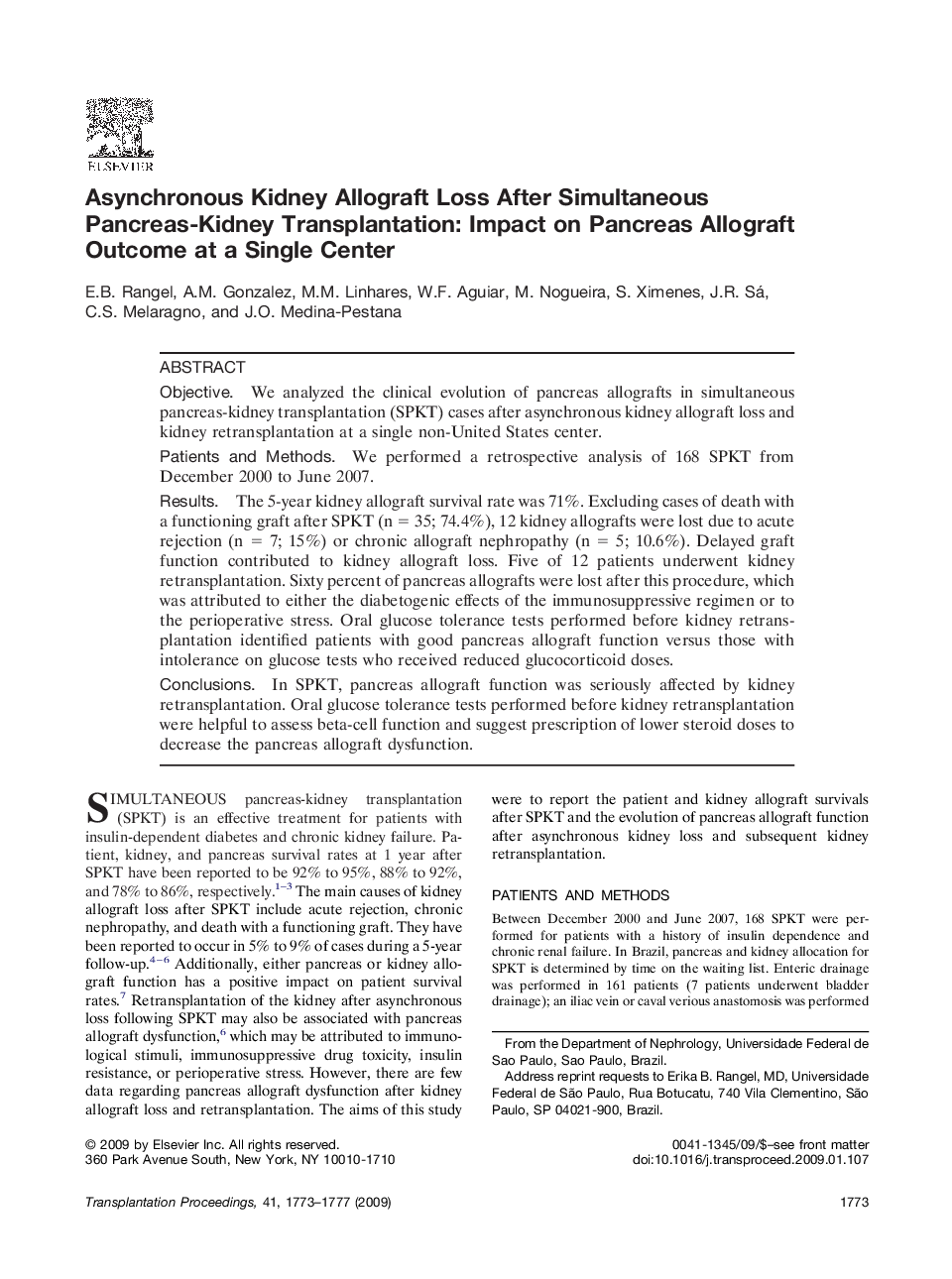| Article ID | Journal | Published Year | Pages | File Type |
|---|---|---|---|---|
| 4259283 | Transplantation Proceedings | 2009 | 5 Pages |
ObjectiveWe analyzed the clinical evolution of pancreas allografts in simultaneous pancreas-kidney transplantation (SPKT) cases after asynchronous kidney allograft loss and kidney retransplantation at a single non-United States center.Patients and MethodsWe performed a retrospective analysis of 168 SPKT from December 2000 to June 2007.ResultsThe 5-year kidney allograft survival rate was 71%. Excluding cases of death with a functioning graft after SPKT (n = 35; 74.4%), 12 kidney allografts were lost due to acute rejection (n = 7; 15%) or chronic allograft nephropathy (n = 5; 10.6%). Delayed graft function contributed to kidney allograft loss. Five of 12 patients underwent kidney retransplantation. Sixty percent of pancreas allografts were lost after this procedure, which was attributed to either the diabetogenic effects of the immunosuppressive regimen or to the perioperative stress. Oral glucose tolerance tests performed before kidney retransplantation identified patients with good pancreas allograft function versus those with intolerance on glucose tests who received reduced glucocorticoid doses.ConclusionsIn SPKT, pancreas allograft function was seriously affected by kidney retransplantation. Oral glucose tolerance tests performed before kidney retransplantation were helpful to assess beta-cell function and suggest prescription of lower steroid doses to decrease the pancreas allograft dysfunction.
